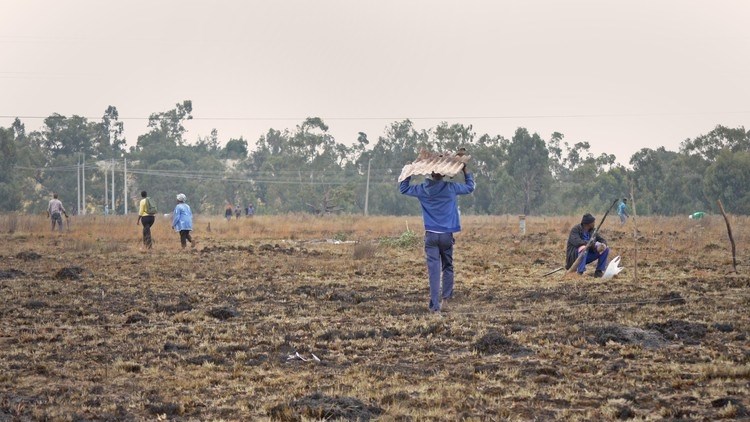Agriculture
Agriculture addresses land evictions, consequences of illegal land occupation─── ELSABÉ RICHARD 07:53 Mon, 12 Dec 2022

The National Department of Agriculture acknowledges an increase in land evictions.
See PODCAST below
According to the department’s Jakobo Raselemane, the uptick in land evictions could be attributed to the following scenarios:
- Labour disputes
Labour disputes can occur when there is an employment agreement and one of the parties has breached the contract. Raselemane explains that this will mostly be centred around issues like essential services.
“For instance, the farmworker has agreed to milk the cows and to work on Sunday or over holidays. You’ll find that at times the worker will decide not to adhere to the contract terms. As a result, that leads to an eviction.
- Disputes over grazing rights versus the number of livestock the occupier may have
A dispute may arise when there has been an agreement where the occupier was permitted to keep, for example, five cattle on the grazing land. However, when the number increases to more than the initial agreement, “that obviously becomes overgrazing. When the owner instructs the occupier to reduce the number of livestock, this will always be seen as an unfair request and will lead the occupier to refuse to reduce the number of livestock. Ultimately the farm owner will go to court and apply for an eviction order.”
- Influence of outside stakeholders
“In some cases, you will find that we have relatives who stay in big cities and work there and come over for the holidays. In most cases, they will mislead the farmworkers to believe that, for instance, they have the right not to work even if their contract directs that.”
ALSO READ: Charges against elderly land occupier dropped
The Extension of Security of Tenure Act and the role it plays in the agriculture sector
Raselemane says the Extension of Security of Tenure Act No 62 of 1997 (ESTA) regulates the relationship between the farm owner and workers. This is an attempt to encourage a harmonious existence between the two parties.
“It actually emphasises the importance of inter-dependency that there won’t be farmworkers without the farm owner and [vice versa], and this is in the best interest of agricultural development which is for the better of the whole country for food security.”
ALSO READ: Illegal land grabs condemned in Parliament
Rights and responsibilities set out in ESTA
According to Raselemane, section 5 of the act is essential in understanding the rights of both the land occupier and land owner:
- The right to human dignity.
- The right to freedom and security.
- The right to privacy.
- The right to freedom of religion and cultural beliefs.
- The right to freedom of movement.
- The right to freedom of association.
- The right to receive visitors.
- The right to graves.
Furthermore, section 6 of the same act sets out the responsibilities of the land occupier.
Raselemane explains that one of the main responsibilities of occupiers is to ensure that he/she does not intentionally harm other land occupiers, does not deliberately damage the property of the owner, and does not assist unauthorised persons in erecting dwellings on the farm.
ALSO READ: Two arrested for illegal land occupation
The burial right versus the tenure right
Raselemane shares that an occupier can bury a deceased family member on the farm, provided that the deceased has continually lived on the said farm.
“So, if, for instance, I have a son who’s an occupier [of the land] and the son goes to the town to work and stay there, when he dies there, it is not an automatic right for the occupier to demand to bury the deceased on the farm because immediately [when] person vacated the farm, he also lost the protection of the act,” explains Raselenane further.
Consequences of illegal land evictions
The act states that if a land owner carries out an illegal land eviction, he/she commits a criminal offence. The penalty for such an offence can either be a jail sentence or a fine. In some instances, it could be both.
Consequences of illegal land occupation
Raselemanse says whenever a landowner is faced with illegal land occupations, he/she has a legal right to approach a court and apply for an eviction order. “Once that order has been granted, the illegal person will be evicted.”
Also, Raselemanse highlights that trespassing is also a criminal offence, citing that the illegal occupier can be found guilty and sentenced to jail.
Municipalities also bear the brunt of illegal land occupations
Raselemanse further explains that the unexpected consequences of illegal land occupation are that it creates a social problem for municipalities. This is because once the private land owner manages to secure an eviction order and the illegal occupant is evicted, that person might move to the township.
“Remember there are no preparations to settle him/her, and this will ultimately lead to informal settlements and increase unemployment.
“All those are the social evils that have unintended long-term consequences for the country…”













